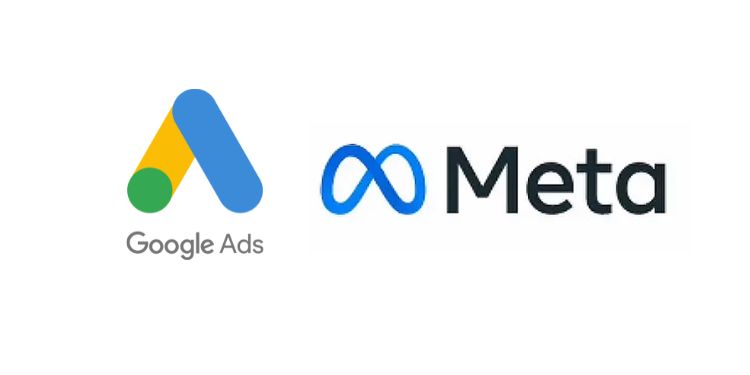
Running Facebook and Google ads together can be a highly effective marketing strategy for several reasons:
Wider Reach: Facebook and Google are two of the largest advertising platforms, and they reach a massive audience. Running ads on both platforms allows you to tap into different user bases, increasing your overall reach and potential customer base.
Diverse Audience Targeting: Facebook and Google offer different targeting options. Facebook allows you to target users based on their interests, behaviours, and demographics, while Google’s targeting focuses on keywords and user intent. Combining both approaches helps you cover a broader range of potential customers and ensures your ads reach the right people.
Complementary Ad Formats: Facebook and Google offer different ad formats that cater to various user experiences. For example, Facebook ads are more visual and engaging, while Google ads are geared towards capturing users at the moment they’re searching for a particular product or service. By using both platforms, you can leverage the strengths of each format.
Cross-Channel Remarketing: Running ads on both platforms allows you to implement cross-channel remarketing. If a user interacts with your ads on one platform but doesn’t convert, you can retarget them with relevant ads on the other platform. This reinforces your brand and increases the chances of conversion.
Enhanced Data and Insights: By running ads on both Facebook and Google, you gain access to data from both platforms. Analysing this combined data can provide valuable insights into customer behaviour, preferences, and the overall performance of your campaigns. This data can help you optimise your ad strategies and improve your ROI.
A/B Testing Opportunities: Running ads on two different platforms allows for easy A/B testing. You can test different creatives, ad copies, targeting options, and landing pages to identify what resonates best with your audience and which combination yields the highest conversion rates.
Flexibility in Budget Allocation: With two platforms, you have the flexibility to allocate your advertising budget based on performance. If one platform is delivering better results, you can adjust your spending accordingly to maximise your return on investment.
Diversified Advertising Strategy: Relying solely on one advertising platform can be risky, as changes in algorithms or policies can impact your reach and results. By diversifying your ad strategy across multiple platforms, you reduce the risk associated with relying too heavily on a single source of traffic.
Keep in mind that the effectiveness of running Facebook and Google ads together depends on your specific business, target audience, and advertising goals. It’s essential to monitor performance regularly and make data-driven decisions to optimize your campaigns effectively.
